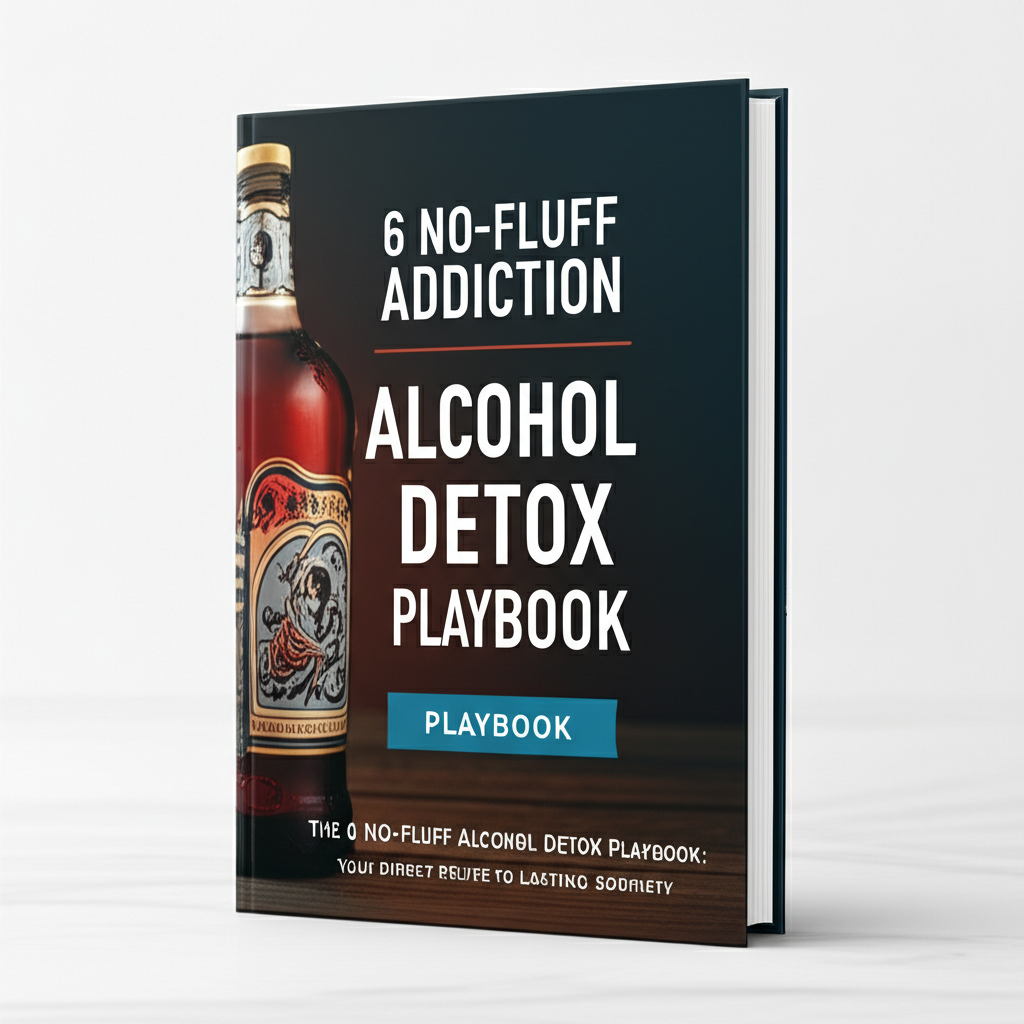The desire to break free from the grip of alcohol addiction is a powerful and courageous first step on the path to recovery. For many, the idea of "detox" – ridding the body of alcohol – is shrouded in fear and uncertainty. Images of severe withdrawal symptoms, discomfort, and even danger can be daunting, often preventing individuals from seeking the help they desperately need.
While the temptation to attempt a "DIY" detox at home might seem appealing, it’s a decision fraught with significant risks. Alcohol withdrawal is not merely unpleasant; it can be life-threatening. This is why a professional, medically supervised alcohol detox is not just recommended, but essential for safety and long-term success.
This article serves as your comprehensive guide, outlining a "Pro Addiction Alcohol Detox Checklist." We’ll break down the three critical components that ensure a safe, effective, and supportive detox experience, laying a robust foundation for lasting sobriety.
The Perilous Path of Self-Detoxification: Why Professional Help is Non-Negotiable
Before diving into our professional checklist, it’s crucial to understand why attempting to detox from alcohol without medical supervision is incredibly dangerous. Alcohol is a central nervous system depressant. When heavy, prolonged drinking stops abruptly, the brain, which has adapted to its presence, goes into overdrive, leading to a range of severe and potentially fatal withdrawal symptoms.
Understanding Alcohol Withdrawal Syndrome (AWS)
Alcohol Withdrawal Syndrome (AWS) manifests in various stages, escalating in severity:
- Early Symptoms (6-12 hours after last drink):
- Tremors (shakiness)
- Anxiety and agitation
- Nausea and vomiting
- Headache
- Sweating
- Insomnia
- Elevated heart rate and blood pressure
- Intermediate Symptoms (12-48 hours after last drink):
- Alcoholic hallucinosis (visual, auditory, or tactile hallucinations that can be terrifying but the person remains oriented)
- Increased severity of early symptoms
- Severe Symptoms (48-72 hours after last drink, potentially lasting longer):
- Withdrawal Seizures: These can occur suddenly and without warning, posing a significant risk of injury or death.
- Delirium Tremens (DTs): A severe and life-threatening form of AWS, characterized by:
- Profound confusion and disorientation
- Severe agitation and anxiety
- Intense hallucinations and delusions
- Rapid and severe fluctuations in heart rate, blood pressure, and body temperature.
- DTs can lead to cardiovascular collapse, respiratory arrest, and death if not medically managed.
Given these serious risks, professional medical supervision during alcohol detox is paramount. It’s not about comfort; it’s about survival and setting the stage for true recovery.
Your 3-Step Pro Addiction Alcohol Detox Checklist
A professional alcohol detox is a carefully orchestrated process designed to safely manage withdrawal symptoms, stabilize the individual physically and mentally, and prepare them for ongoing treatment. Here are the three non-negotiable components:
Checklist Item 1: Comprehensive Medical Assessment & 24/7 Supervision
The cornerstone of any safe and effective alcohol detox is a thorough medical evaluation followed by continuous professional oversight. This step ensures that the detox process is tailored to your unique physiological needs and that any complications are addressed immediately.
Initial Medical Evaluation: Understanding Your Health Landscape
Upon admission to a professional detox facility, you will undergo an extensive medical assessment. This isn’t just a formality; it’s a critical step in creating a safe detox plan.
- Detailed Medical History: Doctors will gather information about your drinking patterns (duration, quantity, frequency), previous detox attempts, withdrawal history, and any existing medical conditions (e.g., heart disease, diabetes, liver issues).
- Physical Examination: A comprehensive physical exam will assess your overall health, vital signs (blood pressure, heart rate, temperature), and any physical signs of alcohol-related damage.
- Laboratory Tests: Blood tests are essential to evaluate:
- Liver and Kidney Function: To assess damage and ensure these organs can metabolize medications safely.
- Electrolyte Levels: Alcohol misuse can cause severe electrolyte imbalances, which need correction.
- Nutritional Deficiencies: Many individuals with AUD are malnourished, particularly deficient in B vitamins (like Thiamine), which are crucial for neurological health.
- Presence of Other Substances: To identify co-occurring substance use that might complicate detox.
- Psychological Screening: A mental health professional will assess for co-occurring mental health disorders (e.g., depression, anxiety, PTSD), which are common among individuals with AUD and require integrated treatment.
Managing Withdrawal Symptoms: Comfort and Safety Through Medication
Once the assessment is complete, medical staff will administer medications to alleviate withdrawal symptoms and prevent severe complications.
- Benzodiazepines (e.g., Librium, Ativan, Valium): These are the gold standard for alcohol withdrawal. They act on the same neurotransmitter system as alcohol (GABA), helping to calm the overactive central nervous system, prevent seizures, and reduce anxiety and tremors. Dosing is carefully tapered over several days.
- Anti-Nausea Medications: To alleviate stomach upset and vomiting, ensuring hydration and comfort.
- Nutritional Supplements: Especially B vitamins (Thiamine, Folic Acid) to prevent neurological complications like Wernicke-Korsakoff syndrome, which can cause permanent brain damage.
- Other Symptom-Specific Medications: Depending on individual needs, medications for headaches, muscle cramps, or sleep disturbances might be prescribed.
24/7 Medical Monitoring: A Vigilant Eye on Your Well-being
During detox, continuous monitoring is non-negotiable. Medical professionals are on-site around the clock to:
- Observe Vital Signs: Regularly checking heart rate, blood pressure, temperature, and respiratory rate for any concerning fluctuations.
- Assess Symptom Severity: Continuously evaluating the intensity of withdrawal symptoms and adjusting medication as needed.
- Respond to Emergencies: Being prepared to intervene immediately if seizures, DTs, or other medical emergencies arise. This rapid response can be life-saving.
- Provide Emotional Support: The detox process can be emotionally taxing. Nurses and staff offer reassurance and support, helping to reduce anxiety and fear.
Checklist Item 2: Personalized Treatment Planning & Integrated Care
Detox is merely the first hurdle. To achieve lasting sobriety, the underlying issues contributing to alcohol addiction must be addressed. A professional detox program doesn’t just get you sober; it paves the way for comprehensive recovery through personalized treatment planning and integrated care.
Tailored to Individual Needs: No Two Paths Are Identical
Effective treatment recognizes that addiction is a highly individual disease. A "one-size-fits-all" approach rarely works.
- Severity of Addiction: Treatment plans vary based on the duration and intensity of alcohol use.
- Co-occurring Medical Conditions: Existing physical health issues will influence the pace and type of post-detox treatment.
- Co-occurring Mental Health Disorders (Dual Diagnosis): If depression, anxiety, PTSD, or other mental health conditions are present, they must be treated concurrently with the addiction. This is known as "dual diagnosis" treatment and is crucial for preventing relapse. For example, someone using alcohol to self-medicate anxiety needs integrated therapy for both conditions.
- Social and Environmental Factors: Consideration of housing stability, employment, family support, and legal issues.
- Previous Treatment History: Learning from past attempts at recovery to refine future strategies.
Addressing Co-occurring Disorders: The Power of Dual Diagnosis Treatment
It’s estimated that nearly half of individuals with substance use disorders also have a co-occurring mental health disorder. Professional detox facilities are equipped to identify and begin treating these complex interactions.
- Integrated Approach: Instead of treating addiction and mental health as separate issues, dual diagnosis treatment addresses them simultaneously. This might involve:
- Individual therapy sessions focusing on both addiction and mental health.
- Group therapy tailored for individuals with dual diagnoses.
- Medication management for mental health conditions alongside addiction treatment.
- Why it Matters: Untreated mental health issues often fuel relapse, as individuals may return to alcohol to cope with their emotional pain or symptoms.
The Role of Therapy During Detox: Planting Seeds of Recovery
While the primary focus of detox is physical stabilization, therapeutic interventions can begin during this phase, laying the groundwork for deeper recovery work.
- Individual Counseling: Brief, supportive sessions with a therapist can help individuals process their emotions, understand the detox process, and begin to explore their motivations for sobriety.
- Educational Groups: Learning about the disease of addiction, the effects of alcohol on the body and mind, and the stages of recovery.
- Motivational Interviewing: Therapists use this technique to help individuals strengthen their commitment to change by exploring and resolving ambivalence about sobriety.
- Family Sessions (where appropriate): Involving family members in early discussions can begin to heal relationships and build a supportive home environment.
Checklist Item 3: Robust Aftercare & Relapse Prevention Strategies
Detox is a crucial beginning, but it’s not the end of the journey. The real work of recovery starts after detox. A professional program will ensure a seamless transition to comprehensive aftercare, equipped with robust relapse prevention strategies. This step is vital for sustaining sobriety long-term.
Why Aftercare is Crucial: Sustaining the Momentum
Without a solid aftercare plan, the likelihood of relapse significantly increases. Aftercare provides the ongoing support, therapy, and structure needed to navigate the challenges of early sobriety and build a fulfilling, alcohol-free life.
- The Brain’s Healing Process: It takes time for the brain to heal from the effects of prolonged alcohol use. Aftercare provides continued support during this crucial period.
- Skill Development: Learning new coping mechanisms, emotional regulation skills, and communication strategies takes practice and ongoing guidance.
- Addressing Root Causes: Deeper therapeutic work to uncover and address the underlying reasons for addiction often begins in aftercare.
Components of a Strong Aftercare Plan: A Multi-faceted Approach
A comprehensive aftercare plan is individualized and often includes a combination of the following:
- Inpatient Rehabilitation (Residential Treatment): For many, especially those with severe addiction or co-occurring disorders, transitioning directly from detox to an inpatient rehab facility is recommended. These programs offer a structured, immersive environment with daily therapy, education, and support.
- Outpatient Programs:
- Partial Hospitalization Programs (PHP): Intensive day treatment where individuals live at home but attend therapy and groups for several hours a day, multiple days a week.
- Intensive Outpatient Programs (IOP): Less intensive than PHP, typically involving fewer hours per week, allowing individuals to work or attend school while receiving treatment.
- Standard Outpatient Therapy: Regular individual and/or group therapy sessions on a less frequent basis.
- Individual Therapy: Ongoing one-on-one sessions with a therapist to explore personal issues, develop coping skills, address trauma, and navigate life challenges without alcohol.
- Group Therapy: Provides a supportive community where individuals can share experiences, learn from peers, and practice new social skills.
- Support Groups (e.g., Alcoholics Anonymous, SMART Recovery): Peer-led groups offer invaluable support, sponsorship, and a sense of belonging. They provide a framework for continued personal growth and accountability.
- Medication-Assisted Treatment (MAT): Medications like Naltrexone, Acamprosate, or Disulfiram can be prescribed to reduce cravings, block the effects of alcohol, or create an aversion to drinking. These are used in conjunction with therapy.
- Sober Living Homes: Transitional housing environments that provide a structured, alcohol-free living situation with peer support and accountability, bridging the gap between inpatient treatment and independent living.
Building a Robust Support System: You Don’t Have to Do It Alone
Recovery is not a solitary journey. A strong support system is a powerful buffer against relapse.
- Family and Friends: Engaging supportive loved ones in the recovery process through family therapy or education sessions can mend relationships and create a network of understanding.
- Peer Support: Connecting with others in recovery through support groups or alumni programs provides camaraderie, empathy, and practical advice.
- Sponsor/Mentor: In 12-step programs, a sponsor provides guidance and support, having navigated the recovery path themselves.
Developing Effective Coping Mechanisms: Navigating Triggers and Stress
Life will inevitably present challenges, triggers, and stress. A key part of aftercare is equipping individuals with healthy strategies to manage these without turning to alcohol.
- Trigger Identification and Management: Learning to recognize situations, people, places, or emotions that provoke cravings or the urge to drink, and developing strategies to avoid or navigate them.
- Stress Management Techniques: Practicing mindfulness, meditation, exercise, yoga, deep breathing, or engaging in hobbies to manage stress effectively.
- Emotional Regulation Skills: Learning to identify, understand, and healthily express emotions rather than suppressing them with alcohol.
- Relapse Prevention Planning: Developing a concrete plan that outlines steps to take if cravings become intense or if a lapse occurs, including who to call and what resources to access.
Conclusion: Your Path to a Brighter Future Begins with Professional Care
Embarking on the journey to sobriety is one of the most courageous decisions you can make. While the desire for change is paramount, the path of alcohol detox is fraught with risks that necessitate professional medical intervention.
Our "Pro Addiction Alcohol Detox Checklist" underscores three non-negotiable pillars for a safe and successful start to recovery:
- Comprehensive Medical Assessment & 24/7 Supervision: Ensuring your physical safety through expert evaluation, medication management, and continuous monitoring for potentially life-threatening withdrawal symptoms.
- Personalized Treatment Planning & Integrated Care: Moving beyond mere detoxification to address your unique needs, co-occurring disorders, and lay the therapeutic groundwork for lasting change.
- Robust Aftercare & Relapse Prevention Strategies: Providing the essential ongoing support, therapy, and tools needed to navigate the complexities of long-term sobriety and build a fulfilling, alcohol-free life.
Remember, seeking professional help for alcohol detox is not a sign of weakness; it’s a testament to your strength and commitment to a healthier future. You don’t have to face the dangers of withdrawal alone. By choosing a medically supervised detox and embracing a comprehensive aftercare plan, you are giving yourself the best possible chance to unlock lasting sobriety and reclaim your life. If you or a loved one is struggling with alcohol addiction, take the first courageous step today and reach out to a professional addiction treatment provider. Your journey to wellness begins now.








